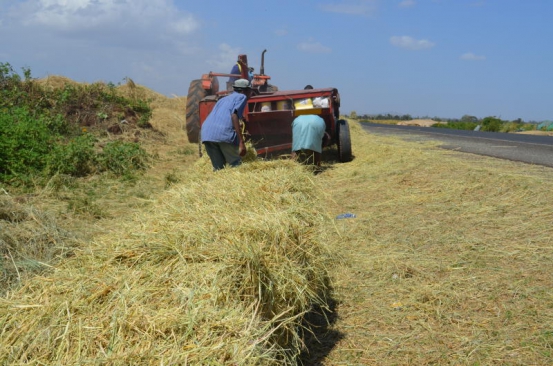×
The Standard e-Paper
Home To Bold Columnists

NAIROBI: Hay produced from the Mwea rice stalks has gained international recognition. Thiba ward Member of County Assembly Jackson Murimi from where the hay is produced, says it is shipped to Saudi Arabia where it is fed to livestock.